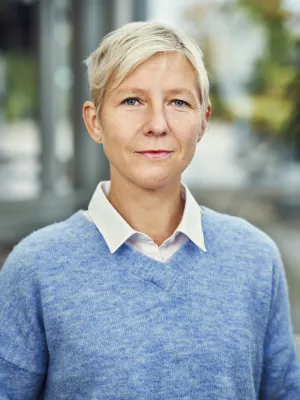
Malin Zillinger
Assistant Head of Department, senior lecturer, associate professor

Why should we teach tourism at universities?
Author
Summary, in English
This presentation targets the question of why tourism should be part of university education. Presently, this is questioned by colleagues in traditional academic disciplines as well as by parts of the tourism industry, which are somewhat reluctant to employ people with a university degree. It is thus time for this matter to be raised. If we are to answer this question by saying that we do need a university tourism education, then we need to consider in a concrete way, what meaningful academic tourism programs should look like. What are the necessary qualities for such programs to succeed in making a difference, inside and outside academia?
In the presentation, we will start be raising a number of fundamental questions. We will then discuss different solutions to these issues based on experiences from Swedish universities. In the end, we will present some preliminary conclusions which are based on our own experiences. They can be seen as a starting point for discussions on tourism didactics as well as on arguments for the necessity of a tourism university degree.
Some issues we would like to raise are: What do we want to teach our students? In short, we argue that the ability to think critically and to ask interrogating questions is of great importance here. We also think that we can teach how to apply abstract and theoretical knowledge on concrete cases. What else do we want to communicate? Of course, key fields of knowledge in tourism need to be mentioned here. Also, we think about where key academic skills needed in tourism education depart from – do they come from social science, management studies, or both? Further, what distinguishes a university education from a professional school? Becoming slightly more philosophic, we want to communicate the importance of basing our actions on knowledge, and not on what we simply seem to believe. In all of these questions, we need to consider differences between bachelor and master students.
In our daily teaching, we educate this by discussing theories and models, reading literature in which others have asked relevant questions, by letting students undertake their own projects (theses, but also other texts), and by including presentations and discussions in our lessons. Further, we could mention that we include case studies and do excursions, two approaches that are closely coupled. We are quite convinced that we are doing an important effort, both for the individual student and for the tourism industry as a whole. But we need to be better in telling what we do, and why we do it in this way.
So what is critical about tourism that is taught at universities? Not necessarily every single text we read or produce – we can be sure about that. And by the way, students have a tendency to prefer normativity both in reading and writing. But as we link research results, statements, political proclamations, cases, theoretical reflections to each other, we produce
a carpet of possibilities that allow for students (and their teachers!) to exercise critical thinking. Taken together, we therefore think that we are contributing to raising critical fellow citizens. In our presentation, we would like to invite the audience to discuss our statements we are making here. Do you dis-/agree? Do you think university education is of importance in the tourism field? If so, what are the most important reasons for this? Welcome to this necessary debate!
Keywords: university education, learning, professional school, critical citizen
Department/s
- Department of Service Studies
Publishing year
2017
Language
Swedish
Document type
Conference - other
Topic
- Economic Geography
Conference name
VII Critical Tourism Studies Conference.
Conference date
2017-06-27
Conference place
Palma de Mallorca, Spain
Status
Unpublished

